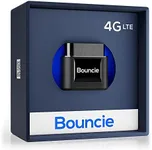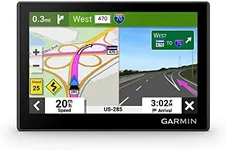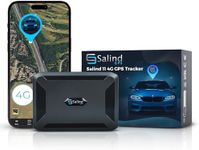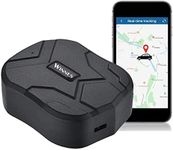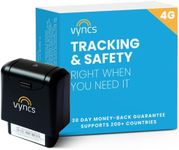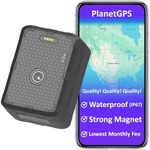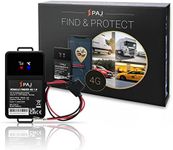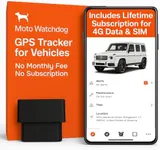Buying Guide for the Best Car Gps Trackers
Choosing a car GPS tracker can feel overwhelming, but understanding your needs and the key features will help you make the right choice. Start by thinking about why you want a tracker: is it for theft protection, monitoring a teen driver, or keeping tabs on a fleet of vehicles? Once you know your main goal, you can focus on the features that matter most for your situation. Remember, the best tracker for you is the one that fits your lifestyle and gives you peace of mind.Real-Time TrackingReal-time tracking means the device can show you the current location of your car as it moves. This is important if you want to monitor your vehicle's location at any moment, such as for theft recovery or keeping an eye on a new driver. Some trackers update every few seconds, while others might update every few minutes. If you need instant updates, look for trackers with frequent refresh rates. If you just want to check in occasionally, a slower update rate might be enough.
Installation TypeInstallation type refers to how the tracker is set up in your car. Some trackers plug into the car’s OBD-II port, some are hardwired to the battery, and others are portable with their own battery. Plug-in and hardwired trackers are good for long-term use and don’t need frequent charging, but they may be harder to move between vehicles. Portable trackers are easy to hide and move, but you’ll need to recharge them regularly. Choose based on whether you want a permanent solution or something you can move around.
Battery LifeBattery life is how long the tracker can operate before needing a recharge or replacement. Trackers that plug into your car’s power can run indefinitely, while battery-powered ones might last from a few days to several months, depending on how often they send updates. If you want a tracker you can hide and forget about, look for long battery life. If you don’t mind charging it often, a shorter battery life might be fine, especially if you want a smaller device.
GeofencingGeofencing lets you set up virtual boundaries on a map. When your car enters or leaves these areas, you get an alert. This is useful for parents, business owners, or anyone who wants to know if a car is being used outside of approved areas. Some trackers let you set multiple zones, while others are more basic. If you need detailed control, look for advanced geofencing features. If you just want a simple alert, basic geofencing will do.
Data Access and AlertsThis refers to how you get information from the tracker—through a smartphone app, website, or text messages—and what kinds of alerts you can receive, like speed, movement, or tampering. Some trackers offer detailed reports and instant notifications, while others are more basic. If you want to stay closely informed, choose a tracker with a user-friendly app and customizable alerts. If you only need occasional updates, a simpler system may be enough.
Subscription RequirementsMany GPS trackers require a monthly or yearly subscription for data services, since they use cellular networks to send location information. Some trackers offer free basic tracking, but most advanced features need a paid plan. If you want ongoing, real-time updates, be prepared for a subscription. If you only need basic tracking, look for options with minimal or no fees.
Size and DiscreetnessThe size of the tracker affects how easy it is to hide in your car. Smaller trackers are easier to conceal, which is important for theft prevention. Larger trackers might have longer battery life or more features, but can be easier to spot. If you want to keep the tracker hidden, choose a compact model. If visibility isn’t a concern, you can focus on other features.
